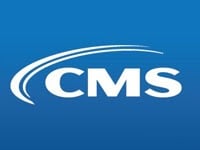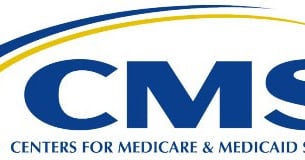CMS Loosens Telehealth Restrictions After COVID-19 Declared National Emergency
 |
CMS is temporarily expanding Medicare telehealth services and waiving existing restrictions on those services under authority granted to the secretary of Health and Human Services in the bipartisan Coronavirus Preparedness and Response Supplemental Appropriations Act approved by Congress and signed by President Trump on March 6. The new policy is intended to protect patient health and slow the transmission of COVID-19 by allowing patients to receive care without leaving home.
Through an emergency declaration under the Stafford Act and the National Emergencies Act, Medicare coverage will now include three types of virtual services: Medicare telehealth visits, virtual check-ins, and e-visits. The temporary rules apply to all Medicare providers.
Additionally, for the duration of the emergency, HHS will waive HIPAA penalties for using non-HIPAA compliant videoconferencing software. This will allow physicians and other health care professionals to use popular technology, such as Skype (basic) and FaceTime, to conduct telehealth sessions. The federal Office of Civil Rights has released further guidance about the waiver of HIPAA penalties.
When conducting a telemedicine encounter, health care professionals should use the same CPT codes as they use for in-person services, but with the Place of Service (POS) code 02 to indicate the care was provided via telemedicine. Psychiatrists considering transitioning patients to telepsychiatry in place of in-person appointments should consult APA’s Telepsychiatry Toolkit, which contains more than 60 pages of guidance on topics related to telepsychiatry, including clinical considerations, administrative and technical requirements for software issues, and reimbursement.
Physicians providing telepsychiatry services need a license in the state in which the patient is located at the time services are provided. However, many governors are declaring states of emergency that may alter or waive these restrictions, and the Federation of State Medical Boards lists states that have declared emergencies and have waived various licensing restrictions. APA is monitoring state-level activities and will disseminate information as soon as there is definitive guidance for members in those states.
Finally, the Drug Enforcement Administration yesterday lifted requirements that health care professionals must conduct an initial, in-person examination of a patient—thereby establishing a doctor-patient relationship—before electronically prescribing a controlled substance. For the duration of the emergency, that requirement will not apply.
Prior to passage of the bipartisan coronavirus bill, APA CEO and Medical Director Saul Levin, M.D, M.P.A., urged Congress to remove restrictions on using telehealth for mental health services. The bill granted authority to HHS Secretary Alex Azar to do so, but did not actually lift the restrictions. Yesterday’s guidance by HHS does so.
“We are in an extraordinary crisis, and the administration has done the right thing,” Levin said. “Now, Medicare beneficiaries who may be at risk of contracting COVID-19 can be seen in their homes via telepsychiatry and maintain their regular course of therapy without disruption. This will also minimize future infections.”
Additional information is posted on APA’s website. APA members with questions related to the new telehealth policy should send an email to practicemanagement@psych.org.
(Image: iStock/Jean-philippe WALLET)





